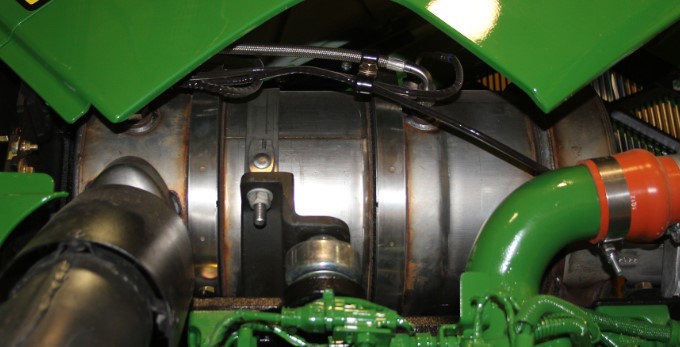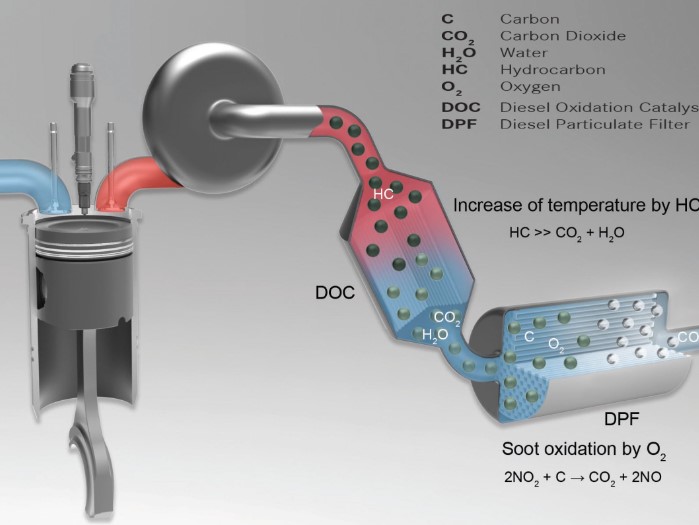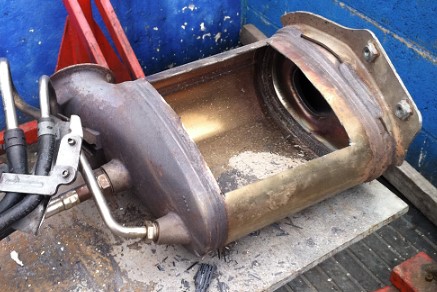If you’re looking to get your tractor in better shape, then a New Holland DPF delete may be the perfect solution for you. This type of modification removes the dirty air from the tractor’s engine, which in turn improves fuel efficiency and emissions. Plus, it can make your tractor run smoother and more efficiently, making it easier to work on and operate.
DPF system in New Holland vehicles

New Holland agriculture and construction vehicles are equipped with a DPF (diesel particulate filter) system, designed to reduce emissions such as carbon monoxide, hydrocarbons, and unburned fuel. This state-of-the-art technology is an integral part of every vehicle. The components of the New Holland DPF system include a Diesel Oxidation Catalyst (DOC), the DPF itself, a burner for generating the required heat to burn soot particles from engine exhaust before entering the atmosphere, and a switch that can be used to stop or delay regeneration process or exit inhibited regeneration mode.
Unfortunately this advanced technology has also been linked with many issues and repairs. To ensure their customers receive quality service at all times New Holland offers detailed information about their DPF systems on their website along with tutorials on how maintenance should be performed correctly in order to avoid any unnecessary headaches down the road resulting from improper care or lack thereof.
How does New Holland DPF system work?
New Holland tractors and construction equipment have two operational modes in their DPF system. The first mode is a regeneration process, which involves an automatic cleaning of the soot that has built up within the filter. This can only occur when the temperature reaches 600°C, however this is difficult to reach while driving at low speeds. Without being able to reach this temperature, the filter cannot be properly cleaned out leading to potential engine issues.
The second operational mode is inhibited regeneration; here, the regeneration process is disabled by a switch on the DPF system itself. While this helps temporarily prevent engine issues from occurring due to clogged filters, it does not solve any long-term problems as eventually those filters will need to be cleared out for optimal performance of your New Holland tractor or construction equipment.
What are the most common problems with the New Holland DPF system?
The Diesel Particulate Filter (DPF) is developed to help prevent environmental pollution. Despite its positive intentions, the DPF can lead to serious issues that can damage your New Holland engine. This is due to a variety of factors including excess soot accumulation and high temperatures within the filter itself as well as incorrect installation or maintenance techniques. It is important for all owners of New Holland engines with a DPF system installed to understand these potential risks and carry out regular servicing and inspection checks in order to ensure optimal operation.
The DPF System Can Block

When the Diesel Particulate Filter (DPF) becomes clogged with soot, which happens frequently, this can lead to a blockage of the exhaust system. The pressure on the exhaust or excessive overheating of the engine is a result of this blockage. Other potential issues that arise include reduced fuel efficiency, inaccurate data in the Electronic Control Unit (ECU), decreased performance and severe damage to the engine.
Costly Repairs and Change
Many New Holland owners and operators are increasingly turning to DPF delete services as a result of the problematic issues previously mentioned. The replacement of this system is not cheap, with costly repairs and parts associated with it. In order to avoid these expenses, our New Holland DPF delete is an option that provides customers with an effective solution. This service is provided 100% online via ECU remapping and has been successful in eliminating all potential problems related to the DPF system.
Why choose New Holland DPF Delete?
Effective Tuning has been offering worldwide New Holland DPF delete service for agricultural and construction equipment for many years. They strongly recommend that customers get the service done before any problems arise with their machine as a way of preventing potential troubles and saving money in the long run.
The team at Effective Tuning consists of experienced tuning professionals who can disable the DPF function from the ECU of New Holland machines, along with all sensors associated with it, so the DPF can be removed from the exhaust. This results in improved drivability, reliability, efficiency, and overall performance. The software used is reliable and safe because no physical opening of an ECU is necessary to complete this process. Customers interested in learning more about their New Holland DPF delete software or services should reach out to Effective Tuning today!
The Advantages of New Holland DPF delete:
Deleting the Diesel Particulate Filter (DPF) from a New Holland vehicle can be an effective way to improve performance and fuel economy. There are numerous advantages that come with DPF removal: improved performance, better MPG, smoother acceleration, less turbo lag, lower exhaust gas temperatures, no more DPF issues and reduced maintenance costs.
If your DPF needs to be deleted, it will require the removal of the entire air intake system. This process usually takes around four hours and can be done by a mechanic with the right tools and knowledge. Once the DPF has been removed, your vehicle will need to be refitted with a new one. New Holland recommends using their own parts, but there are also a number of aftermarket options available.
The benefits of deleting your DPF are clear. Not only will you save money on fuel bills, but you will also reduce emissions levels. If you’re planning on buying a new vehicle in the near future, make sure to check if your DPF needs to be deleted – it may well be worth doing so!

I’m looking to get my New Holland tractor in better shape and I’m considering a DPF delete. I’ve read about the advantages of deleting the DPF, such as improved performance, better MPG, smoother acceleration, and lower exhaust gas temperatures. But I’m concerned about the potential risks associated with the DPF system, such as excess soot accumulation and high temperatures within the filter itself. Does anyone have any experience with the New Holland DPF delete service or know of any other ways to mitigate these risks? I’m also interested in hearing about other people’s experiences with DPF deletes and how it’s improved their tractor performance.